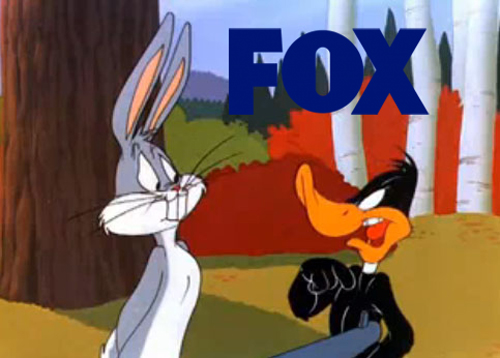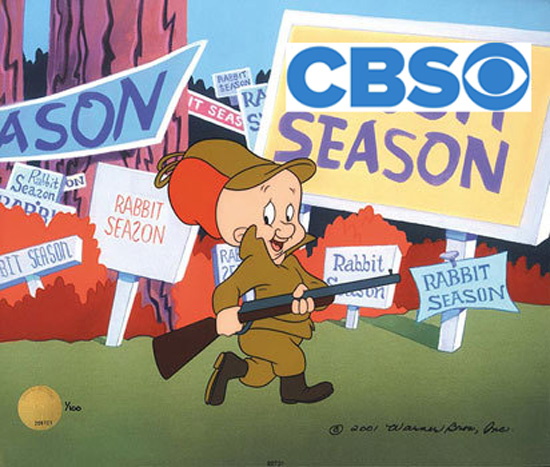
A lot of times when people hear the words ‘marketing research’, they think about demographic areas that divide groups based on age, race, and socio-economic status. The most recognized measure here is the Nielsen ratings. However, marketers depend on more than just knowing those statistics when deciding what products or services to advertise to an audience. Have you ever thought that what you select to watch on TELEVISION might actually reveal information about your personality? Or more specifically, what you are more prone to purchase? Marketers and advertising agencies certainly think so. Many believe that consumers’ personalities, or their psychographic variables, play a large part in their buying habits and that ties directly into what they watch on TELEVISION.
You Are What You Watch – Marketing Geared Toward Your Personality Traits

A lot of times when people hear the words ‘marketing research’, they think about demographic areas that divide groups based on age, race, and socio-economic status. The most recognized measure here is the Nielsen ratings. However, marketers depend on more than just knowing those statistics when deciding what products or services to advertise to an audience. Have you ever thought that what you select to watch on TELEVISION might actually reveal information about your personality? Or more specifically, what you are more prone to purchase? Marketers and advertising agencies certainly think so. Many believe that consumers’ personalities, or their psychographic variables, play a large part in their buying habits and that ties directly into what they watch on TELEVISION.
Psychographic variables are defined as any traits relating to personality formation, opinions, attitudes, interests, and cultural lifestyles (called a psychographic profile); and should not be confused with demographic variables such as age, gender, income, and education level (a demographic profile), or behavioral variables such as usage rate, loyalty and benefit sought. When all are combined, you have an AIO profile which provides insight into an individual’s likes and dislikes as a consumer.
In other words, this permits them to correlate things like what television shows you watch to your level of “optimism” or “bravado” which will let them know whether or not you’d be interested in an advertisement for frozen pizza. Yeah…what will they think of next!
An article by Beth Snyder Bulik, You Are What You Watch, Market Data Suggest, discusses a study by Mindset Media in which consumers’ television viewing habits determine to a large extent what types of products those consumers were most likely to buy. Although there are some who disagree, more and more marketers believe in the merit of using psychographics variables as a prelude into consumer spending habits.
For instance, according to Mindset Media, very modest people are more likely to watch the show “Deadliest Catch” while altruistic people lean more toward reality shows with happy endings, and cooking shows like “Cake Boss”.
“What we really did was we made a marketer’s view of human personality,” said Jim Meyer, the CEO of Mindset Media, and now the senior vice president of client development at Meebo, an online sharing platform company that bought Mindset Media. “Your personality determines what you consume, what TELEVISION shows you watch, what products you buy, and all the other decisions you make — political choices, for example,” he said. “We didn’t invent psychographics or personality traits. They are really the things that separate buyer groups where demographics fail.” He continues, “BMW, Audi and Mercedes buyers, for instance, are a fairly homogeneous demographic group; however, each car appeals to a different type of personality. That’s where psychographics come in.”
While ‘personality type’ testing may not work when used for career paths or other traits of our extremely complicated personalities, it does serve ‘benignly as a marketing tool.’ Meyer states, “Being a Leadership 4, a Pugnaciousness 1, and an Altruism 5 might not necessarily say much about you as an individual, but it does say something about whether you watch “The Vampire Diaries” or drive a BMW, and that’s good enough for marketers.” He continued, “Personality tests look at a whole bunch of neuroses and dysfunctions that may impact decisions, but they’re not what marketers want to focus on. They like to focus on the positive.”
Scott Allen, vice-president of marketing at OneCoach said, “Psychographic factors are every bit as important as demographic factors, if not more so. Advertisers have known this for years and have used it in crafting their messages.”
“The idea of psychographic marketing is not only very real, but very powerful as well,” said associate professor of management at Moravian College, Gary Kaskowitz, PhD. “We know that people buy things based on emotion and justify with reason. Savvy marketers are well aware that psychographics are the most important of all characteristics to understand if you really want to motivate your audience to do something (i.e., buy). Therefore, they will do what they can to understand the emotional story we envision ourselves living and sell their products as props to our personal stories.”
The researchers at Mindset Media have taken this notion and extrapolated it to determine common threads between viewers of particular shows and the items they are most likely to buy. There’s no point in advertising a Mercedes on a show whose audience is made up of rebellious rule breakers when a different show is watched by an audience with personality types that are more favorable to the car.
Mindset execs said the real discoveries are the findings based on personality. For instance, people who have a lot of “bravado” (those who prefer to leap before they look) are 50% more likely than average to be heavy consumers of all media. The same is true for people who rank low in “compliance” (those who chafe at rules and may be sarcastic). They are 60% more likely than average to be high consumers of all media.
“I have seen phenomenal results from this type of marketing. Best of all, when you have a core group of customers you know, you can really validate many of the segments using this type of strategy,” said Philadelphia University professor of marketing, Jason Crook.
To find out which personalities are attracted to which TELEVISION shows, Mindset Media analyzed consumer-reported data from about 25,000 TELEVISION viewers from more than seventy TELEVISION shows and combined that with 350,000 online surveys since they started in 2006. While psychographics is not an exact science, the study revealed many common personality traits among consumers who regularly tuned into a particular show. They also found that a few more popular shows like “House” and “Bones” appealed to such a wide spectrum of viewers, they didn’t have any single personality value that stood out statistically.
Mindset Media identified 21 “standard elements” of personality, including leadership, openness, perfectionism and dynamism. Test subjects were asked to rank these attributes on a scale of one-to-five. Leadership 1s, for example, are follow-the-crowd types, while leadership 5s blaze trails. Here is a list of some of their personality types, what they tend to watch and what they may possibly buy. See where you fit in and what the company’s psychographic analysis says about you.
Traditionalists- Traditionalists score a 1 for “openness” on Mindset Media’s surveys. According to Meyer, a traditionalist respect authority and don’t like aggressive behavior. They are more prone to ads for Honda Odyssey and a crisp, cold, Bud Light.
Get-Alongs- Get-Alongs rank in the top 20 percent on “Compliance.” They more acquiescent then most and basically have their feet very firmly grounded. Marketers should spike their shows with ads for Subaru and yogurt.
Realists- Realists fall low on the creativity scale. They are very practical people with a lot of emotional stability. Realists cool off after a long day by watching “The Bachelor” or “The Bachelorette” dating game show. This group is usually Microsoft users and Cadillac drivers.
Passives- Passive people score in the lowest quintile for “Dynamism” on the Surveys. They also answered questions that suggested they watch a lot of television no matter what the show…a nightmare for marketers. It’s suggested that this group might drive a Saturn and enjoy potato chips.
Actives- Actives, meanwhile, tend to fall in the highest fifth of the “Dynamism” scale. These go-getters love energy bars, watch very little TELEVISION and drive BMWs. Best to advertise to them with online services or radio.
Liberals- Liberals tend to score low on the “Dogmatism” scale making them more flexible or open-minded. If you’re a “Dogmatism 1” in Mindset’s survey, you might be persuaded to ‘buy some Kashi to munch on in your hybrid car’.
Conservatives- Conservative is how Mindset Media describes a “Dogmatism 5” score on their survey. They are “24” fans, love the magic of Disney and gas-guzzling SUVs.
Rebels- Rebels are classified as “Compliance 1,” who reject authority or rules they deem unfair which make them tend eating frozen pizza and driving pick-up trucks.
Mindset Media is careful to clarify that while various personalities may like a certain show, the study is about statistical group tendencies that has an increased probability that viewers of a particular show will be predisposed to have one or more common personality traits.
In the article, Mindset shared specific data from seven shows that are on many media buyers’ short lists. The company detailed not only what personality traits they feel each show is most likely to attract, but offered some advertisers they feel are more, or less, likely to appeal to these personality types.
“Mad Men”
“Mad Men” fans are more creative types and creative people are 41% more likely to watch the show. They are also more emotionally sensitive and intellectually curious who tend to be more social liberals, more dreamers than realists. Social liberals, as defined by Mindset, disdain moral authorities and believe children should be exposed to moral dilemmas and allowed to draw their own conclusions. They are more likely to watch advertisements for Apple, American Express and Audi while ignoring ads for Microsoft, Sierra, Campbell’s soup and Cadillac.
“Family Guy”
“Family Guy” appeals more to rule breakers/rebels (not to be confused with risk takers who have more bravado) and are 61% more likely to watch the show. Risk takers, another group that would watch this show, are 50% more likely to tune in. These people are accepting of others and easy to get along with socially, but also sarcastically reject authority or rules they deem unfair. Advertisers that would appeal to these groups are DiGiornio, Ford F150, Totino’s and Harley-Davidson. Those with less appeal are Dannon Light & Fit yogurt and the Volvo C70
“Glee”
“Glee” followers (Gleeks) appeal to experientialists characterized as being a very open minded group who believe that imagination and intellectual pursuits contribute to a good life and are more prone to ‘go in search of uniquely diversified experiences’. They are in touch with their own feelings and may even feel happiness or sadness more intensely than others. They are 24% more likely to watch the teen drama. Brands they would most easily connect with include Evian and Volkswagen Jetta, while Quaker cereals and Chevy Silverado hold little appeal. Interestingly “Glee” also attracts creative personalities, although not as strong as “Mad Men.” However 17% of the creative type is more likely to watch “Glee”.
“Dancing with the Stars”
For the reality dance show, it’s the traditional personalities that tune in for the glitter and celebrities to a tune of 21%. Traditionalists are characterized as preferring stability and the ‘tried and true’. They respect authority, tend to be more compliant, generally are very ‘down-to-earth’, don’t like aggressive behavior and are usually quick to forgive and forget. These ‘get-alongs’ are 16% more likely to watch the show Advertisers who would appeal to this group include Kraft, Fiber One, Chrysler Town & Country and Buick Regal. Kashi, Toyota Prius, Mountain Dew and Chevy Silverado would not be well received.
“The Office”
Watchers of “The Office,” think they are superior to others. In fact, these ‘superior’ others are a whopping 47% more likely to watch this show. These alpha personality types feel they are extraordinary and happily brag about their accomplishments. They also prefer to be in charge, directing others rather than being directed, seek out new experiences to live fuller lives. Experientialists (like Gleeks) also are more likely to watch the show by 44% over average. Brands that would be a good buy on the show include Starbucks, BMW Series 3, V8 and VW Beetle, while McDonald’s, Lincoln Town Car, Doritos and Dodge Caravan holds less of an attraction.
“The Biggest Loser”
Realists with personalities that fall low on the creativity scale are 20% more likely to watch this dramatic show. They are pragmatic people grounded in practicality often to the exclusion of intellectual or artistic matters. These tried-and-true types are emotionally stable and less prone to high-and-low drama. Also the traditionalists, that are inclined to watch “DWTS,” are 24% more likely to watch “The Biggest Loser.” Advertisers good for these types include Bud Light, Cadillac CTS, Velveeta and Honda Odyssey. Newman’s Own, Nissan Leaf, Cascadian Farm organics and Honda Civic aren’t their cup of tea.
“Real Housewives of Orange County”
Mr. Meyer described this as a “very advertiser friendly” show, comprised of a group known as pugnacious and are 33% more likely to watch the show. These pugnacious “antagonist” leaders are people who put honesty and the truth over keeping the peace regardless of who they hurt. They are willing to take charge with n overabundance of ideas and strong vision, and they deal with others inclusively, but decisively. Leaders are another type of personality that gravitate to this show and are 25% more likely to watch. Good ads for these types are Nike, Crest Whitestrips, Botox and Apple, while Maxwell House and car companies like Honda, Hyundai and Buick aren’t so strong.
The remaining shows the company has analyzed are reserve for their clients; however, Mindset Media plans to continue analyzing consumer’s television personalities in 2011, so if information was not released on your favorite show this year, then maybe it will be identify next time around.
There are all different types of people in the world, and it is impossible to classify all of them with these methods. Hence, there are sure to be experientialists viewing “Mad Men” and traditionalist types turning into “Family Guy.” But these psychographic profiles can assist advertising to be more effective both to the audience and the advertiser. In that regard, this data could prove important to the future strength of the entertainment industry.
So what does all this mean to us the viewing audience? Whether we watch commercials or not, we should be aware that those bothersome annoyances disrupting our favorite television shows serve a practical purpose for ad researchers. As consumers, we play a determining role in which commercials air during which programs. And this type of research will play a large role in affecting what shows will be available for our amusement in the future. What advertiser wouldn’t pay a little more to have a ready-made audience gathered before their commercials?
Corporations that want to maximize their ad dollar towards selling as much product as possible could start to shy away from broadly viewed show like “Bones” and “House” in support of shows that are geared to more receptive audiences for their product. Also studios could use this strategy to determine which pilots to pick up each year based on who advertises with their network. When these shows are viewed from a psychographic profile, Nielsen ratings seem a whole lot less important.
So let’s play armchair psychographic analyst. What do your favorite shows say about who you are? Knowing what kind of person you are, and in our hearts most of us do, what types of shows would you say appeal to you, both currently and in the past? Maybe we can develop some data of our own to help the cause. 





